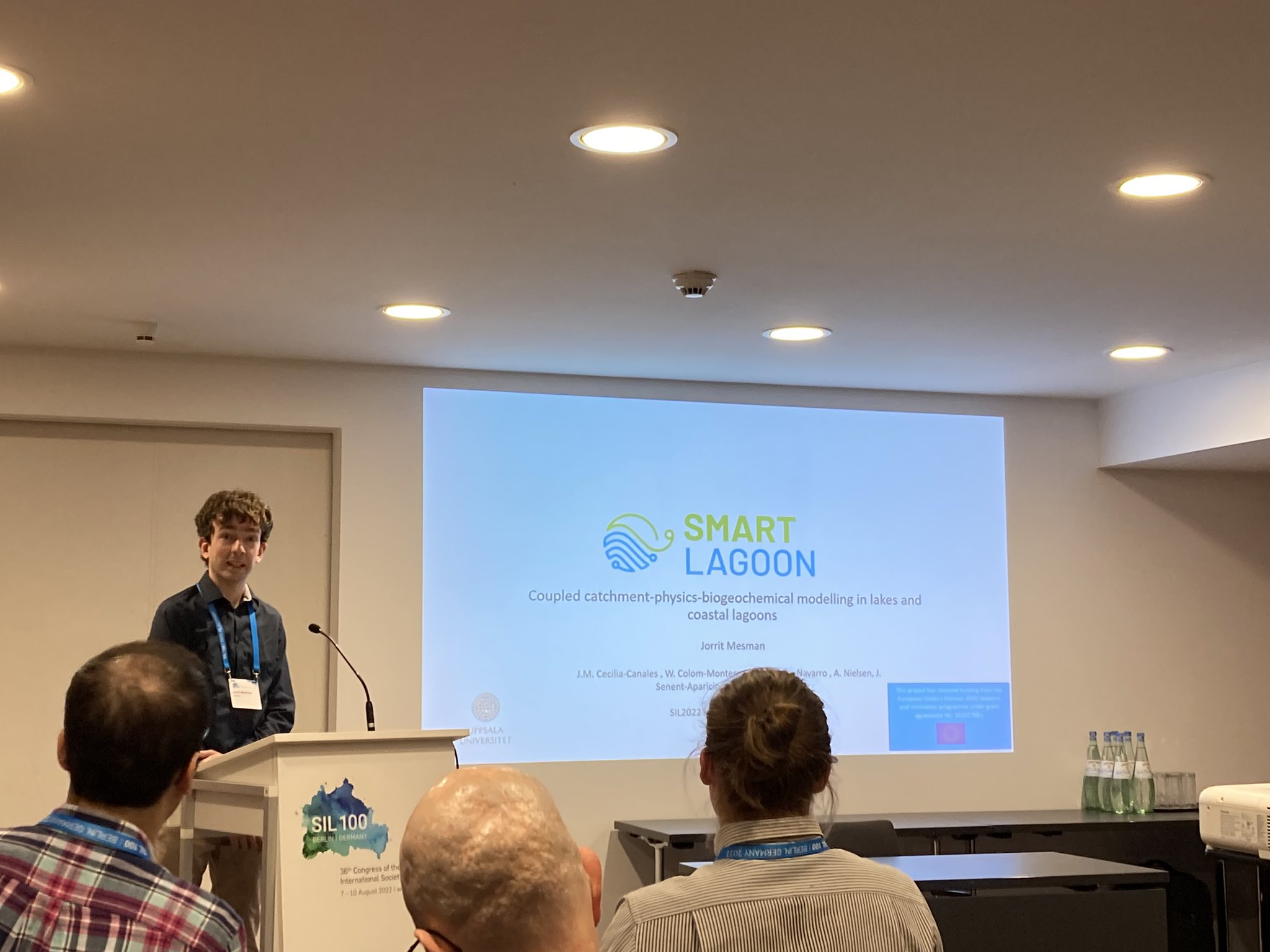
SMARTLAGOON represented at scientific meetings: DSOS and SIL
In July and August 2022, Jorrit Mesman represented SMARTLAGOON at two scientific events; the virtual DSOS (Data Science Open Science) Summit and the SIL (International Society of Limnology) conference in Berlin, Germany. Our project is composed of scientific knowledge and expertise that has been built-up over the past decades, but SMARTLAGOON also generates new knowledge that may benefit the larger scientific community, and therefore it is good to occasionally share this knowledge at scientific meetings. Moreover, by listening to and interacting with other scientists, new insights may be gained that can further help to achieve SMARTLAGOON’s goals.
DSOS is a virtual event that intends to create an opportunity for researchers to discuss data science and open science, providing a platform for especially early-career researchers to present their work, and organising panel discussions about interesting topics in these fields. It requires no registration cost and the past two years it has been organised together with a workshop series, under the joint title “Hacking Limnology – Virtual Summit & Workshops”. SMARTLAGOON’s presentation was placed in the “Data Intensive Models” session and focused on the benefits and challenges of coupling climate, lagoon, and catchment models together, of course with specific focus on the complex situation in the Mar Menor.
SIL is an international association involving all aspects of limnology – the study of inland waters. The 2022 conference was special, as it celebrated SIL’s 100-year anniversary! Many of the topics discussed at this meeting can be linked to the Mar Menor: eutrophication, cross-boundary interactions, extreme events, multiple stressors, land-use impacts, and many, many more. SMARTLAGOON was represented in a session about the linkage between physical and biogeochemical lake (or lagoon) modelling. This coupled modelling approach is essential for the goals of SMARTLAGOON – considering the interactions between flooding, lagoon temperature, oxygen, and phytoplankton – and represents the state-of-the-art of scientific practice. It was very valuable to interact with other researchers on this topic, and to share the progress made within SMARTLAGOON.

